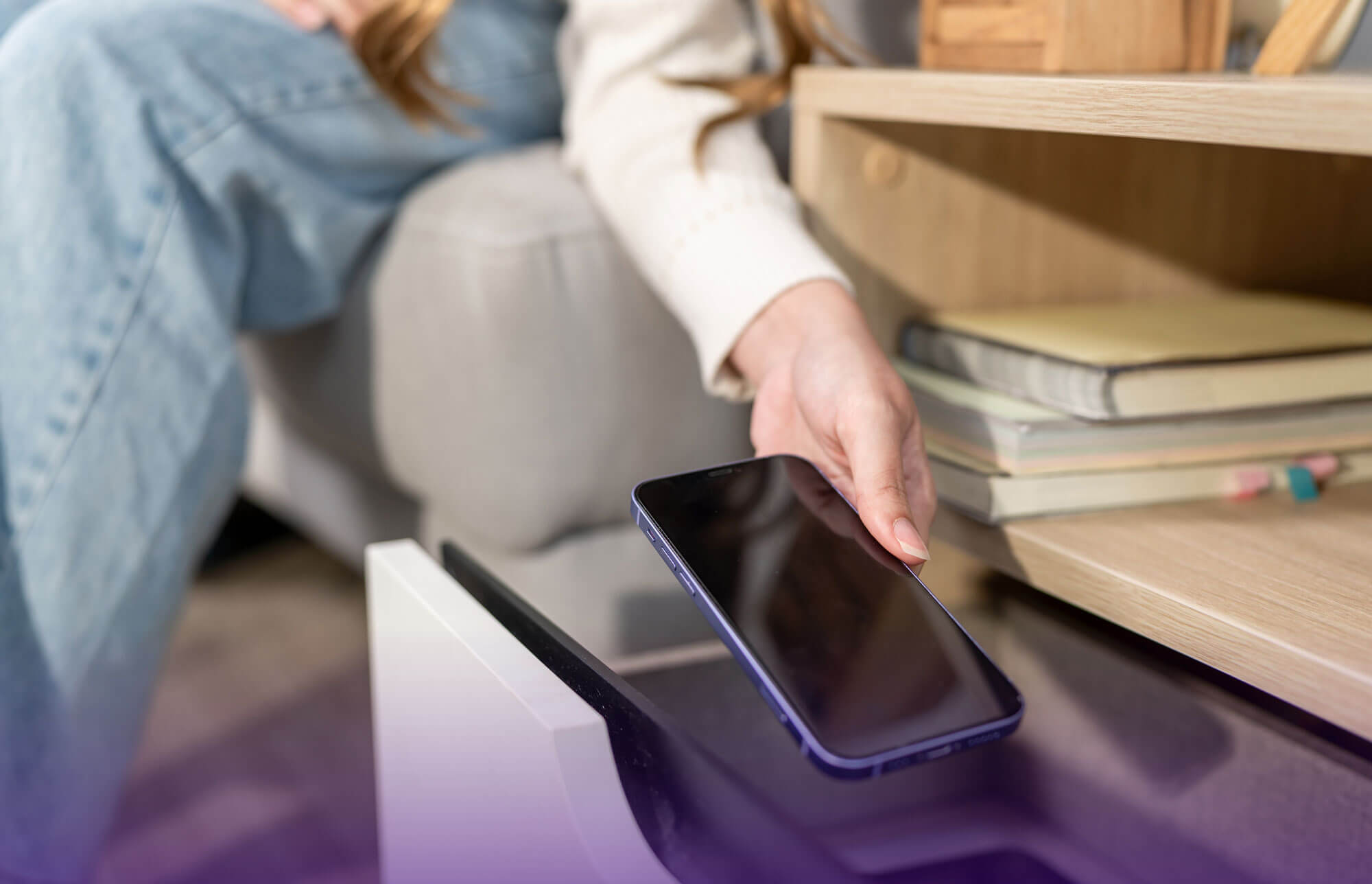The Case for Unplugging
Americans spend an average of 7 hours each day looking at a screen. Gen Z averages a whopping 9 hours. That’s a lot of time.
To put it in perspective, consider this: The average woman’s lifespan is around 80 years. That means that if you spend 7 hours a day looking at screens, it equates to 23.3 years of your entire life. Sure, some screen time is necessary – most work and jobs require us to use devices daily, so we’ll give it a pass – but if you ask us, those years and hours could be better spent.
We’re not suggesting ditching your devices, but maybe it would benefit you to evaluate how much of a toll it takes on your routines and your greater connection to the world. And taking a break from screens and unplugging might be the answer you need to reclaim control, strengthen bonds, and rediscover the more important things in life.
Do You Need a Digital Detox? 4 Obvious Signs That Say ‘Yes!’
Look. The truth is we could all probably use a digital detox – regardless of how addicted we are or not. But there are some obvious tell-tale signs your device is more in control of you than you think.
Signs you really, truly need a digital detox:
- You scroll social media with no goal in mind. With a few clicks, you open an app and begin scrolling without a reason or agenda. It’s become a force of habit.
- You get irritable and anxious. If you hear a vibration or chime, you check it instantly (or break out in sweat if you can’t).
- You have trouble falling asleep or sleeping restlessly. Using screens right before bed is a big no-no! Countless studies have proven it’s bad for your circadian rhythm and disrupts sleep patterns, which is ultimately bad for your overall cognitive decline.
- You feel inadequate. It’s hard not to compare yourself to others, especially when everyone shares their life stories in the best possible light. But when those digital rose-colored glasses make you feel inferior or depressed about your own journey, it might be time to step away.
Unplug Without Feeling Disconnected: Set Boundaries with These Strategies
If you feel too reliant and addicted to your device, a digital detox might not be what you need. A “tech-free” day or two can help you reset and remember to enjoy simpler moments in life.
However, these very same devices are what keep us connected to our world, family, and friends. So, how do you strike a balance? Here are strategies and ways to set boundaries between you and that device – phone, tablet, whatever it may be – and still be connected.
Create Tech-Free Spaces
Setting boundaries is always a healthy first step. What kind of boundaries exactly? Consider times and spaces to create a tech-free environment. The bedroom is a great place to start, as it prevents you from scrolling that melatonin-suppressing blue screen before sleep and allows you to sleep deeply through the night.
Another time and place to create a tech-free zone is dinner with family or friends. Gathering for a meal should be about spending time together and hearing about one another’s days, after all. So, keep the phone on silent in another room and be present with those around you.
Inform Your Work and Social Circles
A digital detox can be tedious. Work pings beg immediate attention. Social circles and group chats are constantly updated. It’s hard to catch a break from your devices, even if you have every good intention.
So... you want some distance from devices, but how do you create distance with others? How do you respectfully create boundaries with people? The answer is simple: tell them your digital detox plans. You might be surprised by how supportive they can be!
Ignoring work and family is not an option, but you can alleviate how frequently they reach out. Let your circles know your limits but ensure that you can always be reached in a true emergency. And you never know – your digital detox might just inspire others to do the same!
Manage Your Devices Wisely
It may sound contradicting, but one way to unplug is to beat tech at its own game – using apps to help monitor your screen time. Apple’s Screen Time and Android’s Digital Wellbeing can help you track and visualize how much time is spent where. Then, you can block those addictive distractions and set goals to unplug a bit more.
Also, curate your device! For example, you can organize your phone’s home screen to display healthier apps, unfollow accounts that add stress or don’t bring you value, disable unnecessary notifications and pings. In time, you can make your device work better for you.
Replace Devices with More Fulfilling Activities
Our devices offer lots of entertainment. Is it healthy entertainment? Debatable.
But if you’re a girl who loves to grab your device at the first sign of boredom, stop and think: Can this mindless scrolling be replaced with a more fulfilling activity? Activities like reading, exercising, cooking, or engaging in a hobby can stimulate your mind and keep your brain sharp and healthy.
So, instead of mindlessly scrolling, pick up a book or magazine, jot down your thoughts in a journal, or break a sweat with a quick jog or yoga session. Soon, you’ll replace your online device with an offline daily habit.
Connect Offline and In Person
Being constantly connected to everyone through our devices is convenient. Social media especially keeps us informed of the major life events of distant relatives and friends, which lets us feel connected, even from afar.
However, it’s this same connection that leaves some with FOMO and/or the scary thought that they might lose touch with someone. So, what is the alternative?
Connect with loved ones in person and offline. Face-to-face meetings and social interactions offer deeper connections than texts, memes, and ‘Like’ buttons. Even for faraway friends, make an excuse to reunite for a girl's getaway. You’ll be surprised how profoundly different being present with another real-life human being can be.
Unplug With Baby Steps
Remember: We’re talking about digital detox here, not cutting out tech entirely! The goal is not to ditch devices but to be more mindful and intentional with them. Use them as needed, but not as a habit.
Like anything, you can quit cold turkey. If your device is practically glued at your hip, take baby steps to create distance with it. Create a plan to replace it with healthier alternatives, like screen-free evenings and in-person bestie Sunday brunches. That way, you can stay unplugged without feeling disconnected from life.


